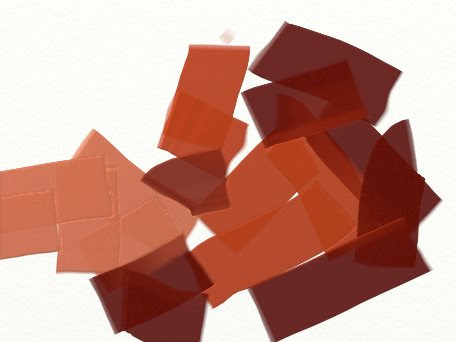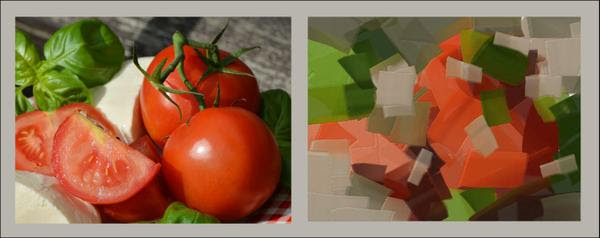Behind every good painting is a sound abstract design. In visual art most of the 20th century was devoted to some sort of abstraction. Today many artists paint abstractly, but to a lot of people abstraction is meaningless. That's too bad because understanding abstraction can go a long way towards enhancing a realistic work whether photo-realistic or more impressionistic.
Here is an experiment that can open up for you one way abstraction can work. In science, experiments often begin with setting intentions, so that's what we will do first. The subject is the photo of tomatoes below.
OUR INTENTIONS
1. We will use only one tool, a flat brush, and with it we will use only a straight, flat stroke
2. We will focus only on color
3. Each stroke will take on a different direction than the previous stroke of the same color
4. Each color is repeated at least twice.
First pass: Doing those four intentions, we'll place the lighter value reds of the tomatoes.
Second Pass: Still using the four intentions, we'll use the darker reds.
Third Pass: We add the lighter greens.
Fourth pass: We add the darker greens.
Fifth pass: The lighter grays.
Sixth pass: The darker neutral reds
Seventh pass: The darker grays
Eighth pass: The middle value greens
Ninth pass: More light grays and the abstract is complete
The sequence of color selection doesn't matter. What matters is following the four intentions.
Here is the subject and the abstract that grew out of it.. Why not try choosing a photo and abstracting it using this process.











No comments:
Post a Comment
I welcome your comments.